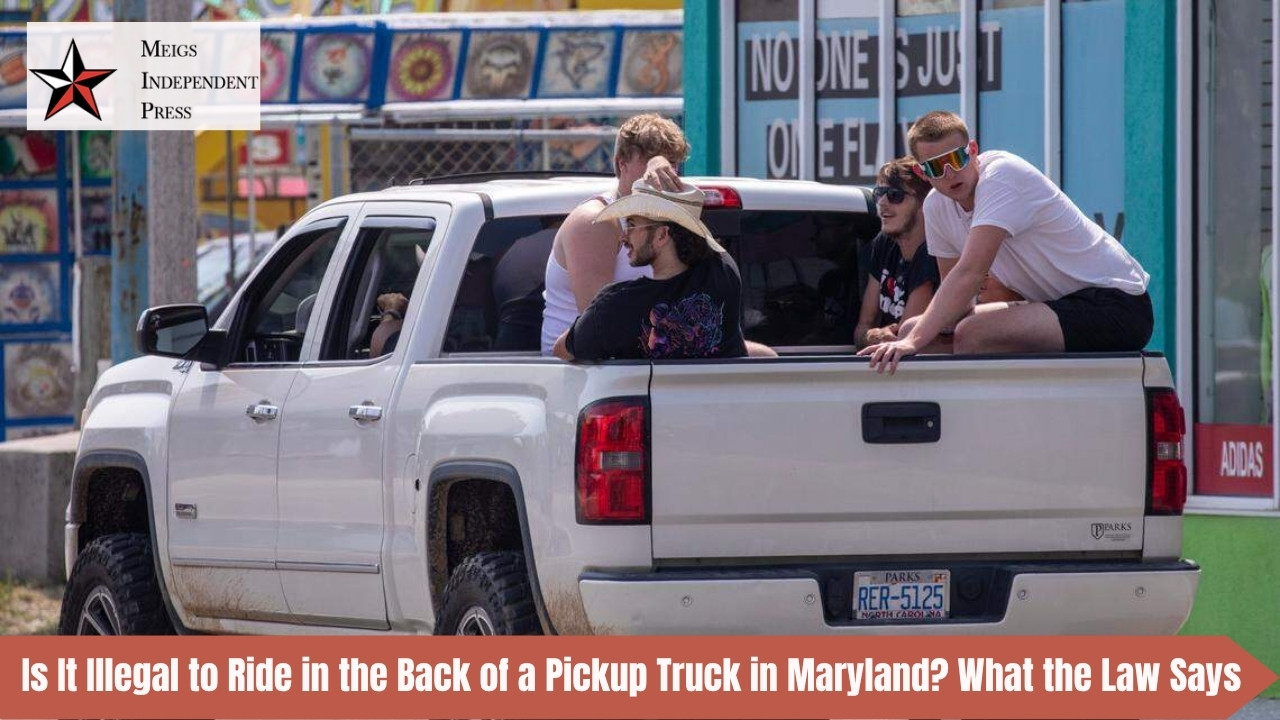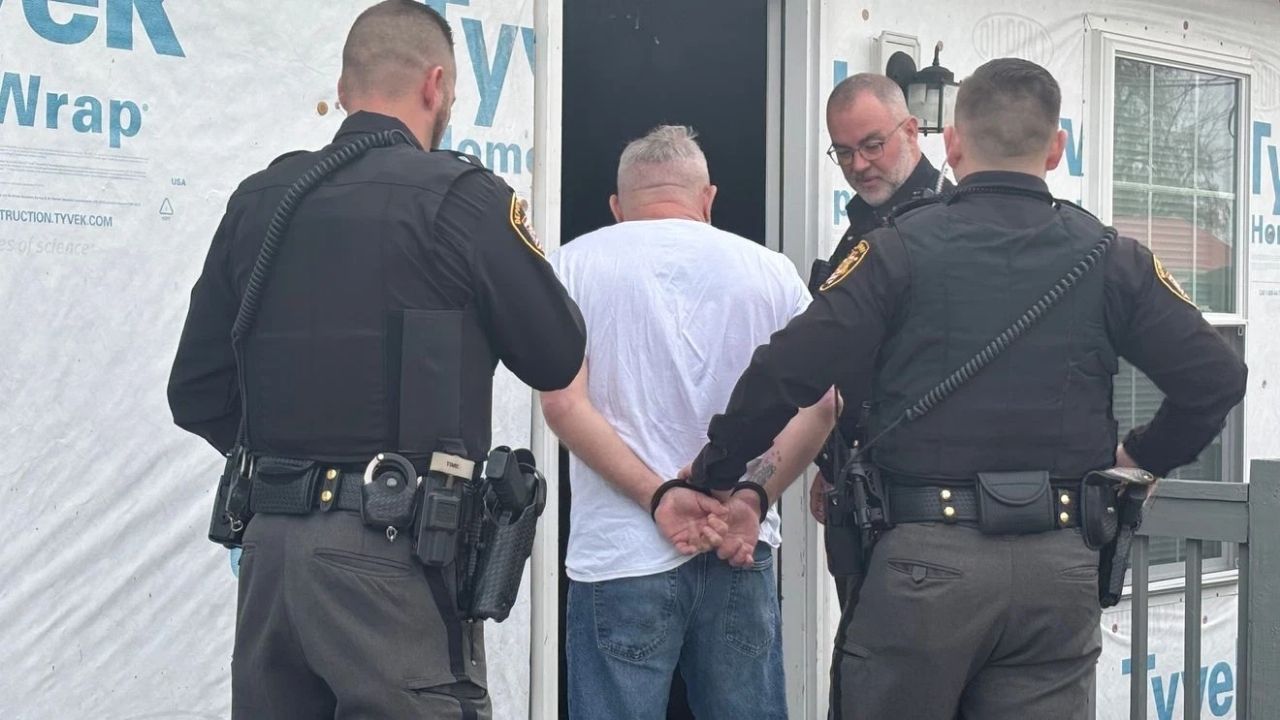The image of passengers enjoying a breezy ride in the open bed of a pickup truck is a classic slice of Americana. It evokes a sense of freedom and simple joys, often associated with rural life, parades, or a trip to the beach. However, the legality and safety of this practice are far from simple. In Maryland, as in many other states, specific laws govern who can ride in the back of a pickup truck and under what circumstances. This article delves into the specifics of Maryland’s vehicle laws, exploring the potential dangers and legal ramifications of riding in a truck bed.
Maryland’s Stance on Passengers in Truck Beds
Maryland law directly addresses the issue of passengers in the open area of a pickup truck. The state’s primary concern is the safety of individuals, especially minors. The law is not an outright ban but imposes significant restrictions, primarily based on age.
The General Rule: Restrictions for Minors
The core of Maryland’s regulation on this matter is designed to protect children. Under Maryland Transportation Code § 21-1104, it is illegal for a person to operate a truck with a gross vehicle weight of 10,000 pounds or less while a minor under the age of 16 is riding in the unenclosed bed of the vehicle. This law makes it clear that for most standard pickup trucks, carrying children in the open back is a violation.
The statute is specific, targeting “Class E” trucks, which encompasses most non-commercial pickups on the road. The intent is to prevent children, who are more vulnerable to serious injury, from being exposed to the significant risks associated with riding in an area with no safety restraints, no protection from the elements, and no buffer in the event of a collision.
Are There Exceptions to the Rule?
While the law is strict, it does carve out a few specific exceptions where minors are permitted to ride in the back of a pickup truck. These exceptions are narrowly defined and apply to particular situations:
-
Parades: A minor may legally ride in the back of a truck if the vehicle is being used in a parade that has been officially authorized by a local government authority.
-
Agricultural Operations: The law permits minors to be transported in the back of a truck when the vehicle is being used for farming purposes. This is a nod to the practical realities of agricultural work where workers may need to be transported across fields or short distances on a farm.
It is crucial to note that these exceptions are limited. A casual trip to the store or a family outing does not fall under these categories. For anyone 16 years of age or older, the law is silent, meaning adults are legally permitted to ride in the back of a pickup truck without violating this specific statute. However, the absence of a prohibitive law does not equate to an endorsement of the practice’s safety.
The Dangers: Why Riding in a Truck Bed is a Bad Idea
Legal considerations aside, the physical risks associated with riding in a pickup truck bed are substantial. Law enforcement and safety experts universally advise against it for numerous reasons.
Lack of Safety Restraints
The most obvious danger is the complete absence of safety features. The cargo bed of a truck is designed to haul inanimate objects, not people. There are no seat belts, no airbags, and no crumple zones. In the event of a sudden stop, a sharp turn, or a collision, a passenger in the back can be easily ejected from the vehicle. Ejection from a vehicle dramatically increases the likelihood of catastrophic injury or death.
Statistics consistently show that occupants not wearing seat belts are far more likely to be killed in a crash. The forces at play, even in a low-speed collision, can be immense and unforgiving for an unrestrained passenger.
Exposure to Road Debris and Weather
Passengers in an open truck bed are directly exposed to the elements. This includes not only wind and rain but also debris kicked up from the road surface. Small rocks, pieces of tire, and other refuse can become dangerous projectiles at highway speeds, causing serious injury. Furthermore, there is no protection from the sun, which can lead to heatstroke or severe sunburn on hot days.
Legal Consequences of Violating the Law
For drivers who choose to ignore Maryland’s law regarding minors in truck beds, the penalties can be more than just a simple fine. A violation of this statute is considered a primary offense, meaning a police officer can pull over a vehicle solely for this reason.
The driver of the vehicle is the one who will be cited. While the immediate penalty may be a fine, the long-term consequences can be more severe, especially if an accident occurs. If a child is injured or killed while illegally riding in the back of a truck, the driver could face much more serious criminal charges, including reckless endangerment or even manslaughter.
Furthermore, a violation can lead to points on a driver’s license and an increase in insurance premiums. Insurance companies view this type of behavior as high-risk, and a conviction will likely impact a driver’s rates for years to come.
Conclusion
Ultimately, the decision to allow someone to ride in the back of a pickup truck is a matter of personal responsibility. While Maryland law provides a legal framework, especially for the protection of children, it does not cover every possible scenario. For adults, who are legally allowed to ride in the bed, the risks remain just as real.
Before making a choice that could have life-altering consequences, consider the potential for a tragic outcome. A moment of fun or convenience is not worth a lifetime of regret. The safest place for any passenger in any vehicle is inside the cab, properly secured with a seat belt. Maryland’s law reflects a broader understanding of vehicle safety: truck beds are for cargo, and passenger compartments are for people.








Leave a Reply